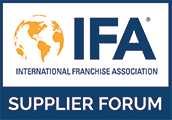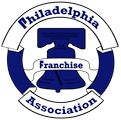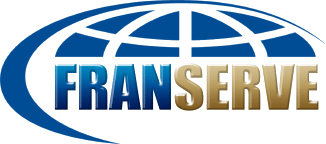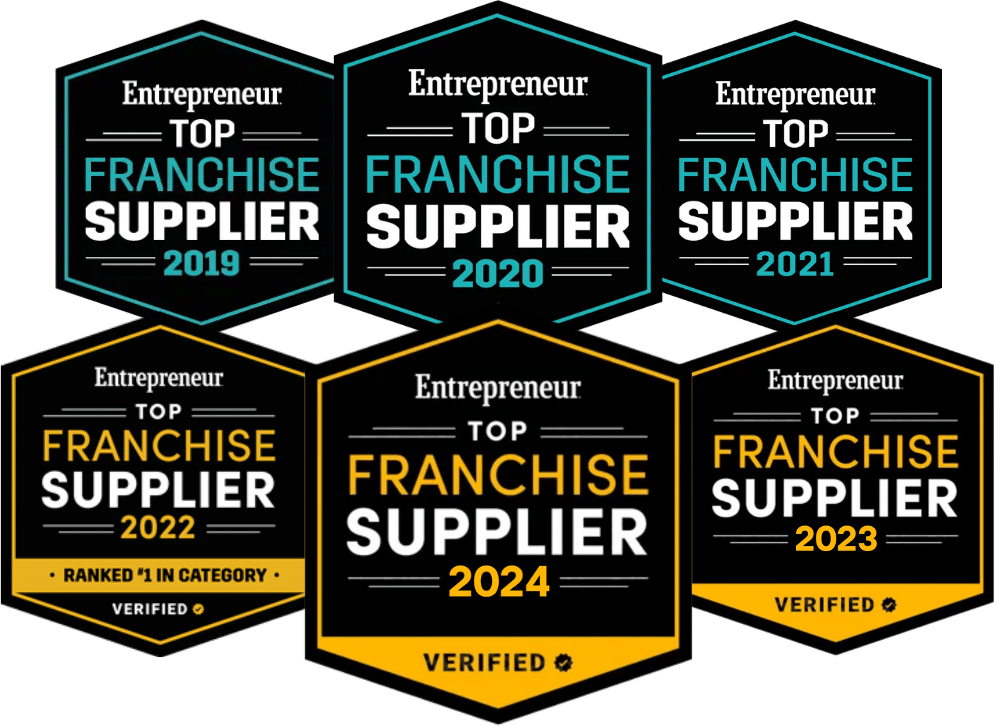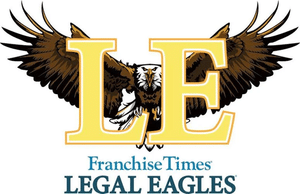Securing a Federal Trademark for Your Franchise
The best way to secure the rights to your name and logo is with a federally registered trademark with the US Patent and Trademark Office (the USPTO). Your trademark is the foundation of your business and how customers will know and identify your services and products.
Unfortunately, many, many companies that seek a trademark need to make adjustments to their name and/or logo once they dig into the trademark process. We have done this with many clients over the years and would welcome an initial no-cost consultation on the trademark viability of your name.
The key is to determine what portion of your name and proposed “mark” is dominant in creating the commercial impression. The dominant portion of your name will be the fanciful, arbitrary and/or suggestive portion, as defined below, as opposed to the descriptive or generic portion. Descriptive names, although the most common, are the hardest to trademark and have the weakest protection. Below are the categories of “marks” from the strongest to the weakest. If you are starting fresh, your best bet is to create a “Fanciful” or “Arbitrary” name.
Types of Business Names
A “Fanciful” name is one that is completely made up, like EXXON, GOOGLE or ZAPPOS. This is the strongest trademark. Think of all the drug commercials on television with new made up words. The reason the drug companies pick these strange names is to give themselves the strongest trademark protection possible.
An “Arbitrary” name is a real word that has nothing to do with the product or service, like APPLE (for computers/electronic devices), FOXY (fruit/vegetables), PUMA (sneakers) or DIESEL (clothes).
Fanciful and Arbitrary names are always capable of becoming trademarks. The only question is whether someone is already using the name or if someone has already registered it. If they are using it, but have not filed for a federal trademark, they most likely will be able to continue to use it within a certain geography. If they have filed for the trademark or have the trademark, then they will be able to prevent you from using the name in the same way you will be able to prevent others from using the name once you receive a federal trademark.
The next category is “Suggestive”. These are names that imply or suggest a quality of the goods/services without describing the actual good/service. Some examples are Microsoft, Netflix or Open Table. These are usually capable of being trademarks, but are not afforded as much protection as fanciful or arbitrary marks.
Next up is “Descriptive”. A Descriptive name actually describes the good/service or a generally desired quality of the good/service. Descriptive names can become trademarks, but usually only after being used for a significant period, and after the general public associates the word with a specific source of a good or service. SHARP (for tv’s); INTERNATIONAL BUSINESS MACHINES (for computers), SHOPRITE (grocery stores). In our experience, this is the most common naming convention for small business owners who want their customers to instantly recognize what they do by just hearing their name. However, the government won’t give you protection over that name and won’t allow you to prevent others from describing their trade. If you are a shoemaker and your business name is “Soft Shoes,” the logic is that you can’t stop another shoemaker who specializes in making soft shoes from calling his business “Soft Shoes.” It seems obvious, but in practice it is the most common misconception and mistake of small business owners with respect to naming their enterprise.
Generic words can never be trademarked (unless accompanied by Fanciful, Arbitrary or Suggestive word(s) and disclaimed). In the above example, the shoemaker cannot get a trademark for “Shoemaker.” Even if he is only known as Shoemaker and quite famous, he can still never protect that word itself. By “disclaiming” it he can still use the word in his name, he just cannot make a claim on that “generic” word, which is a process known in the trade as “disclaiming.”
Understanding the Spectrum
If you look at it like a color spectrum, if fanciful were all the way on the left (violet) and generic was all the way on the right (red) arbitrary, suggestive would be the area between the 500 and 600 wavelength.

There are additional categories like surnames and geographic names, which are generally treated like descriptive names, and should be avoided. Part of our analysis as attorneys is to review your name, or proposed name, and to judge the reaction of the trademark examiners and the likelihood of registration.
Listen to our Clients
All I can say is there are good people in this world and Spadea Lignana has a group of them. This firm knows their stuff and they explain everything in clear terms you can understand. They are patient and so helpful without sticking it to you at every turn. Highly, highly recommend if you own your own business or franchise. I have worked with Matt and Sara and both were so down to earth, they were very good at explaining legalize and they were both very knowledgeable. This is a big time firm with a home town feel.
Get Started Securing Your Trademark for Your Franchise
Just by using your name in commerce you are afforded some degree of common law trademark protection automatically. The federal government, through the USPTO, maintains the trademark registry, which is public information available to everyone. Once your trademark is approved, you then have a “registered trademark”. That is what the ® means. It means that your trademark is “registered” with the USPTO. That gives you specific protection under federal law, which gives you more protection and remedies for violators than a simple common law trademark.
By registering your name and logo, you will help prevent copycats who may attempt to build their business on your goodwill. However, you should know that anyone using the name or close approximation of your logo prior to your registration could potentially have superior rights. Those rights can range from their ability to continued use within a certain geography up to their ability to prevent your current use. In addition to the above analysis, an extensive national search is advisable before applying for your trademark so you will have a better handle on the likelihood of a successful application and the boundaries of your marks even with a federal trademark secured. We can help you with that search. If you are considering franchising your business, a detailed analysis of your name is a very important first step. Securing a federal trademark for your name and/or logo will make your business more unique, valuable and secure from imitation.
Call us today at (215) 525-1165 if you have further questions on trademarking your franchise.
